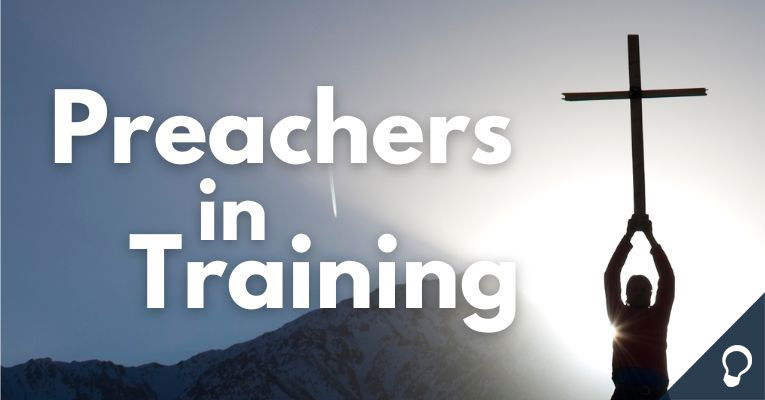
Podcast: Play in new window | Download

Season 3, Episode 1
For Friday, January 22, 2016
“The Twelfth Man”
HOST: Wade Webster
Show Notes:
-
When football fans hear a reference to the twelfth man, they naturally think of Texas A & M University. The tradition of the twelfth man dates back almost 100 years. The tradition is based on a student named E. King Gill who was asked to suit up during a championship game in case he was needed. Although Gill’s number was never ultimately called, he forever stands as an emblem of readiness. As important as readiness is in football, it is even more important in worship. Each of us must get ready to worship on Sunday. The New Testament writer James instructed worshippers to put on two things: holiness and humility (Jam. 4:8-10). To help us to get ready to worship this week, we will study the inspired words of James.
Episode Transcript:
When college football fans hear a reference to the twelfth man, they immediately think of the Texas A & M Aggies. The tradition of the twelfth man dates back almost 100 years. On January 2, 1922, the Aggies were playing Centre College, the nation’s top ranked team. As the game wore on, exhaustion and injuries began to pile up. Fearing that he might run out of players, the A & M coach, remembered E. King Gill, a member of the squad that wasn’t suited up that day. Gill was up in the press box helping reporters identify players. The A & M coach sent word up to the press box for Hill to suit up and to be ready. Although Gill’s number was not ultimately called that day, the tradition of the twelfth man was born. Gill, the twelfth man, stood ready to help the eleven men on the field. Today, the entire student body of Texas A & M University plays the role of the 12th Man. If you have ever attended a game at Kyle Field, then you know the vital role that the twelfth man plays in what happens on the field.
Spiritually speaking, there is a great lesson that we can learn from the tradition of the twelfth man. Like E. King Gill, we as Christians need to be suited up and ready for service. Paul instructed the evangelist Titus to teach the brethren “to be ready to every good work” (Tit. 3:1). Surely, every one can agree that worship is a good work. As a good work, we as Christians must be ready to worship. How do we get ready?
James wrote, “Draw nigh to God, and he will draw nigh to you. Cleanse your hands, ye sinners; and purify your hearts, ye double minded. Be afflicted, and mourn, and weep: let your laughter be turned to mourning, and your joy to heaviness. Humble yourselves in the sight of the Lord, and he shall lift you up” (Jam. 4:8-10). “Draw nigh” is from the Greek word eggizo (eng-id-so) which means “to draw or come near to, to approach” (1448). If we want to draw near to God in worship, James lists two things that we must have: holiness and humility. Let’s consider these two things in more detail.
First, let’s consider HOLINESS.
James instructed the brethren to “cleanse” their hands and to “purify” their hearts (Jam. 4:8). The word translated as cleanse is the Greek word katharizo (kath-ar-id-zo) which means “to make clean” (2511). It can mean to make clean in a physical sense from dirt or in a moral sense from sin. It seems clear in the context of James that it has reference to sin. God is a holy God. Those that come into his presence must also be holy. They must have holy hands and hearts.
Paul addressed the hands in his letter to Timothy. He wrote, “I will therefore that men pray every where, lifting up holy hands, without wrath and doubting” (1 Tim. 2:8). Holy hands refer to hands that are free from blood and wickedness. You may recall that God refused to accept the sacrifices and prayers of those of Isaiah’s day because their hands were dirty. We read, “And when ye spread forth your hands, I will hide mine eyes from you: yea, when ye make many prayers, I will not hear: your hands are full of blood” (Isa. 1:15).
Peter addressed the holy hearts in the first letter that bears his name. We read, “Wherefore gird up the loins of your mind, be sober, and hope to the end for the grace that is to be brought unto you at the revelation of Jesus Christ; As obedient children, not fashioning yourselves according to the former lusts in your ignorance: But as he which hath called you is holy, so be ye holy in all manner of conversation; Because it is written, Be ye holy; for I am holy” (1 Pet. 1:13-16). Please note that Peter instructed brethren to gird up the loins of their minds. As you likely know, men in that culture wore long garments that had to be tucked in or tied up when they worked, ran, or fought. In like manner, when we prepare to worship, we must tie up the loose ends of our minds. Often, those who lead opening prayers will pray that those who are worshipping will put away worldly thoughts. That is simply a modern way of stating Peter’s words.
Second, let’s consider HUMILITY.
James wrote, “Be afflicted, and mourn, and weep: let your laughter be turned to mourning, and your joy to heaviness. Humble yourselves in the sight of the Lord, and he shall lift you up” (Jam. 4:9-10). When James instructed the brethren to be afflicted, and mourn, and weep, he was instructing them to be poor in spirit. As you recall, this was one of the attitudes that Jesus wanted His servants to have. We read, “Blessed are the poor in spirit: for theirs is the kingdom of heaven” (Mt. 5:3). In case there was any doubt about James meant when he commanded the brethren to be afflicted, and mourn, and weep, James concluded his thought by commanding the brethren to “humble” themselves in the sight of the Lord. The word translated as “humble” is tapeinno (tap-i-no-o). The word means “to make low” or to “bring low” (5013). Those who want to draw nigh to God in worship must first humble themselves. In the context, James had already made this clear. God resists the proud (Jam. 4:6). Peter also made this point and elaborated on it. He wrote, “Likewise, ye younger, submit yourselves unto the elder. Yea, all of you be subject one to another, and be clothed with humility: for God resisteth the proud, and giveth grace to the humble. Humble yourselves therefore under the mighty hand of God, that he may exalt you in due time” (1 Pet. 5:5-6). The image that Peter used is especially beautiful. He spoke of being clothed with humility. Most likely Peter was thinking back to the occasion when Jesus girded himself with a towel and washed the feet of the disciples (John 13:4-7). Like our Lord, we must gird ourselves with the towel of humility if we want our worship to be accepted of God. In the eighteenth chapter of Luke, Jesus gave an example of pride and humility in worship. As you recall, two men went up to prayer. One man was humble and the other man was proud. One man confessed that he was a sinner, while the other commended himself for not being a sinner. One wouldn’t lift up his eyes to heaven, while the other seemed to want heaven to look at him. When both were done praying, it was the humble publican and not the proud Pharisee that went down to his house justified.
In this study, we have considered the importance of being ready to worship. We have seen that two main things are required: holiness and humility. Let’s keep both of these things in mind as we prepare for worship this week.
Your Feedback
- Email: wade@thelightnetwork.tv
- Voicemail: 903-26-LIGHT (903-265-4448)
- If you enjoyed the show, please rate it on iTunes and write a brief review. That would help tremendously in getting the word out! Thanks.
Previous Episodes
Subscription Links






